TMJ Treatment - Temporomandibular Joint Pain
If you experience ongoing pain in the area near your ear, your jaw or the muscles on the side of your face, possibly accompanied by a clicking or popping sound or restricted jaw movement, you may be suffering from TMD — an abbreviation for Temporomandibular disorders. Sometimes people incorrectly use the term TMJ to refer to these problems, when in fact TMJ is the abbreviation for the temporomandibular joint — or jaw joint — itself. So while you definitely have a TMJ (two of them in fact), you may or may not have TMD.
Baltimore TMJ Facial clinician, Dr. Robert Grill Provides Treatment Of TMJ & TMD Related Issues
It's not always so easy to figure out exactly what's causing TMJ symptoms, but the good news is that most TMD cases resolve themselves with the help of conservative remedies that Dr. Grill at the Center For TMJ Facial Pain will recommend for you. In fact, it's important to exhaust all such reversible remedies before moving on to anything irreversible, such as surgery.
The two TMJs that connect your lower jaw, the mandible, to the temporal bone of the skull on either side, are actually very complex joints that allow movement in three dimensions. The lower jaw and temporal bone fit together as a ball and socket, with a cushioning disk in between. Large pairs of muscles in the cheeks and temples move the lower jaw. Any of these parts — the disk, the muscles or the joint itself — can become the source of a TMD problem. If you are in pain, or are having difficulty opening or closing your jaw, we will do a thorough examination to try to pinpoint the problem area and suggest appropriate remedies.
 Causes of TMD
Causes of TMD
As with any other joint, the TMJ can be subject to orthopedic problems including inflammation, sore muscles, strained tendons and ligaments, and disk problems. We also know that TMD is influenced by genes, gender (women appear to be more prone to it), and age. Physical and psychological stress can also be a factor. In some cases, jaw pain may be related to a more widespread, pain-inducing medical condition such as fibromyalgia (“fibro” – connective tissues; “myo” – muscle; “algia” – pain).
Signs and Symptoms of TMD
Clicking Sounds — Some people with TMD hear a clicking, popping or grating sound coming from the TMJ when opening or closing the mouth. This is usually caused by a displacement of the disk inside the joint. Someone standing next to you might even be able to hear it. Clicking by itself is actually not a significant symptom because one third of all people have jaw joints that click, studies show. However, if the clicking is accompanied by pain or limited jaw function — the jaw getting “stuck” in an open or closed position, for example — this would indicate TMD.
Muscle Pain — This can be felt in the cheeks (masseter muscles) and temples (temporalis muscles), where the two big pairs of jaw-closing muscles are located, and possibly the neck. If you feel soreness and stiffness upon waking up in the morning, it's often related to habits such as clenching and/or grinding the teeth at night. If you have this type of sleeping habit it should be evaluated.
Joint Pain — Pain that's actually coming from one or both jaw joints technically would be described as arthritis (“arth” – joint; “itis” – inflammation) of the TMJ. When we look at radiographs (x-ray pictures) we find that some people have arthritic-looking TMJs but no symptoms of pain or dysfunction; others have significant symptoms of pain and dysfunction but their joints look normal on radiographs. There is no cure for arthritis anywhere in the body, but medication can sometimes help relieve arthritic symptoms.
Relieving the Pain
Once we complete an examination, we will come up with a strategy for treating your condition and managing your pain. Sometimes a temporary change to a softer diet can reduce stress on the muscles and joints. Ice and/or moist heat can help relieve soreness and inflammation. Muscles in spasm can also be helped with gentle stretching exercises. Non-steroidal anti-inflammatory medications and muscle relaxants can also provide relief. Physical therapy can be beneficial once a diagnosis is developed.
Other Treatment Options
Severe TMD cases may require more complex forms of treatment, once an appropriate diagnosis is developed. It's rare for major surgery ever to be necessary in a case of TMD. Again, it's important to try the wide range of conservative, reversible treatments available, and give them enough time to work as they almost always prove effective. The first step is an examination here at our dental office. We don't want you to be in pain, so please come in and see us.
To learn more about the treatment options available, contact Center For TMJ Facial Pain for a TMJ consultation today!



